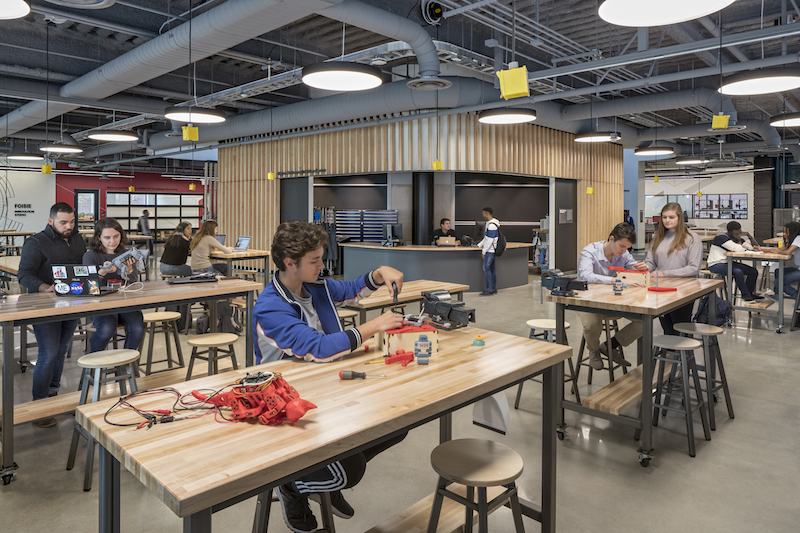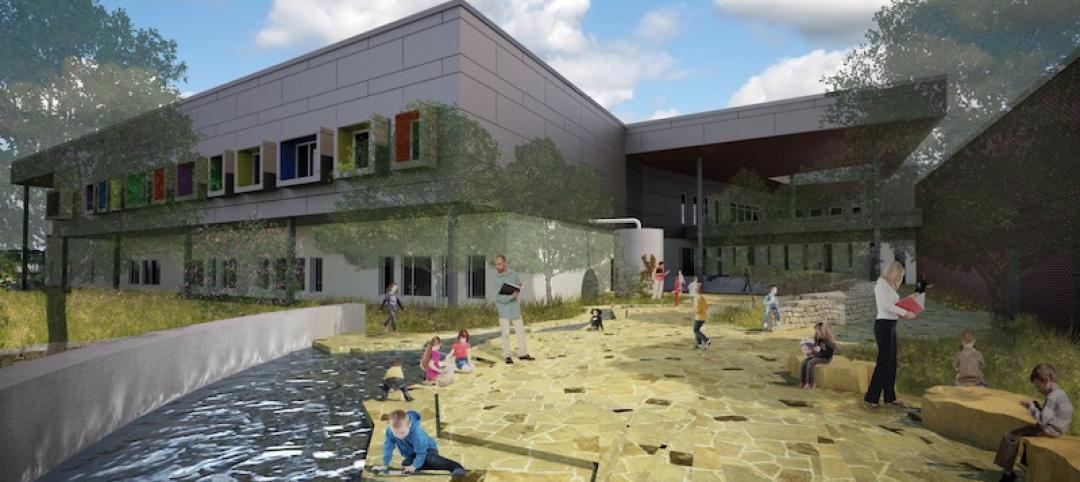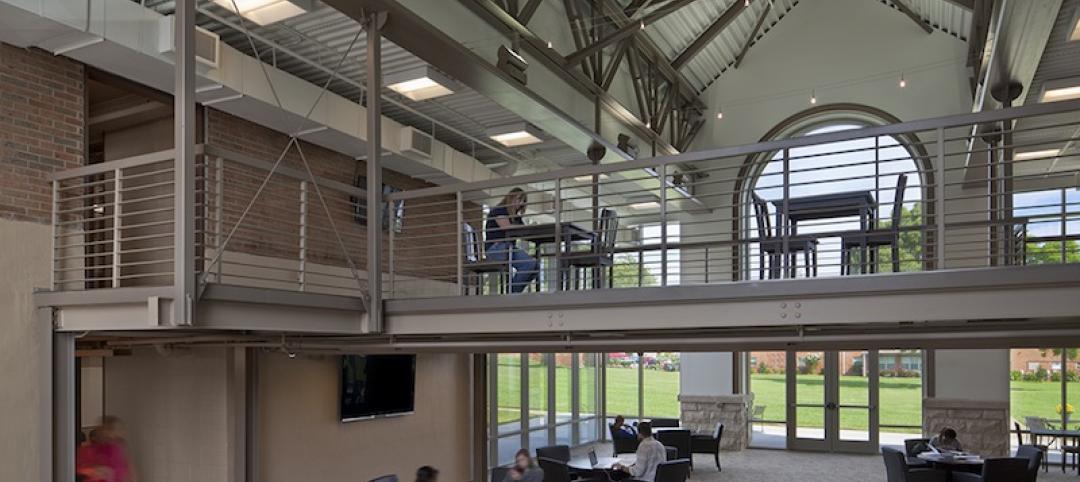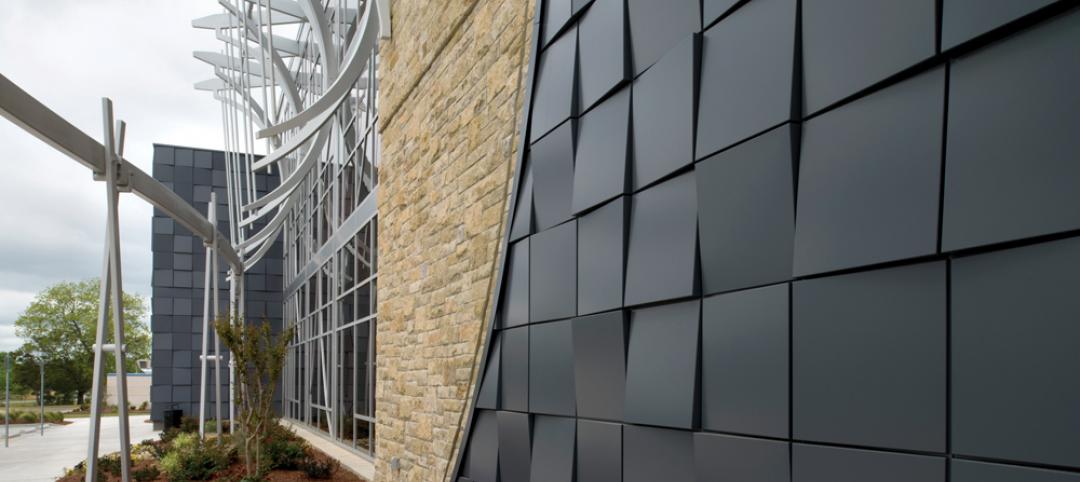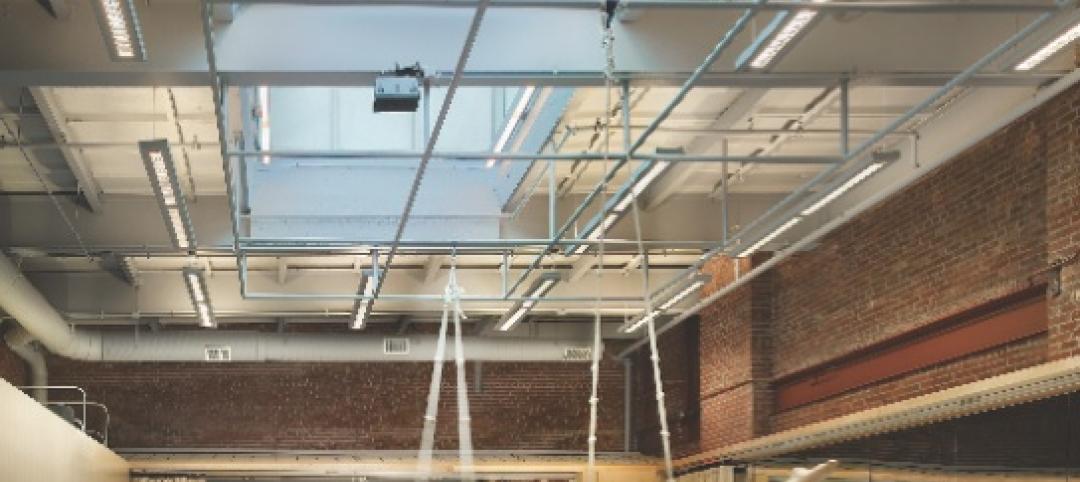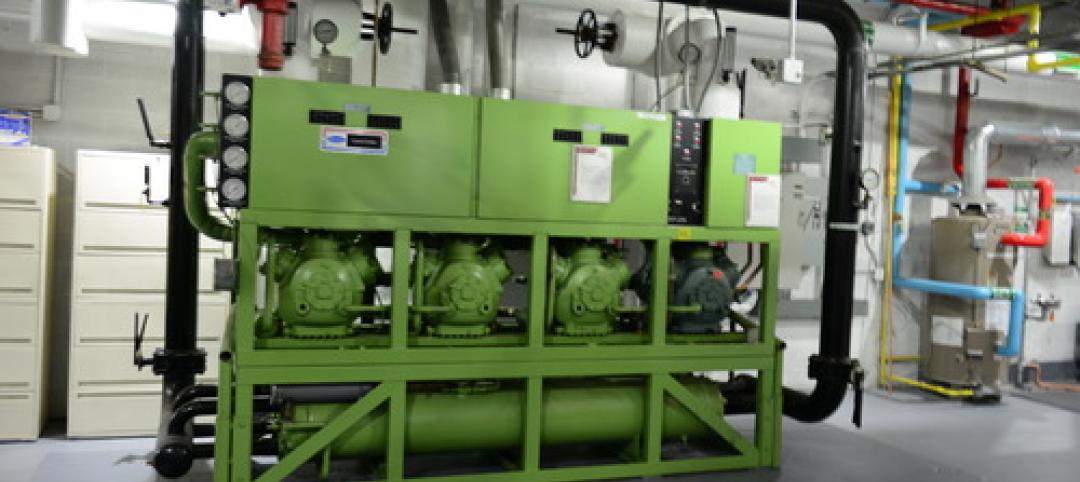Late last month, construction was completed on the $47.7 million Foisie Innovation Studio and Messenger Residence Hall on the campus of Worcester (Mass.) Polytechnic Institute.
The 78,000-sf residential and classroom facility was funded through an alumni-led campaign that raised more than $18 million. The building is named after Robert Foisie and Priscilla and George Messenger Jr., who were instrumental in raising money for student scholarships.
The three-floor residence hall, with 140 beds in single and double rooms, sits atop the two-floor innovation studio that is intended for student project work. It includes a variety of academic spaces that range from high-tech classrooms to an innovation and entrepreneur center. There’s also a robotics and “global impact” lab, makerspace, technology suites, and business incubators.
The building is the embodiment of “the modern WPI plan,” according to the Institute’s President Laurie Leshin. That plan, which was launched in 1970, revolves around a project-oriented curriculum that blends classroom learning with hands-on, real-world experience.
Instead of semesters, WPI’s academic year consists of four seven-week terms, during which students take three courses per term that emphasize collaboration. Students select the courses they take, and WPI has eliminated failing grades so that students can focus on learning and teamwork instead of competition. First-year students can opt for a two-term Great Problems Seminar that explores topics such as public health and security, and devises potential solutions. The curriculum offers an Interactive Qualifying Project, which allows students to engage in sponsored projects. A significant portion of senior year is devoted to the Major Qualifying Project, often completed with corporate sponsors, where students demonstrate their research, design, and problem-solving skills.
“The driving force behind this project was a need to create a space that helps spark new opportunities and drive student innovation. Our team’s expertise allowed for continued construction over a two-year period, without disturbing the busy campus setting,” said Ron Simoneau, vice president at Shawmut Design and Construction, which completed this project in collaboration with Gensler, which worked with Arup on the building’s design. (On its website, Arup points out that several of its staff members are WPI alumni.)
The Building Team broke ground in May 2016 and WPI held a ribbon-cutting ceremony for the building’s opening last fall.
Different spaces within the building are named after numerous university benefactors.
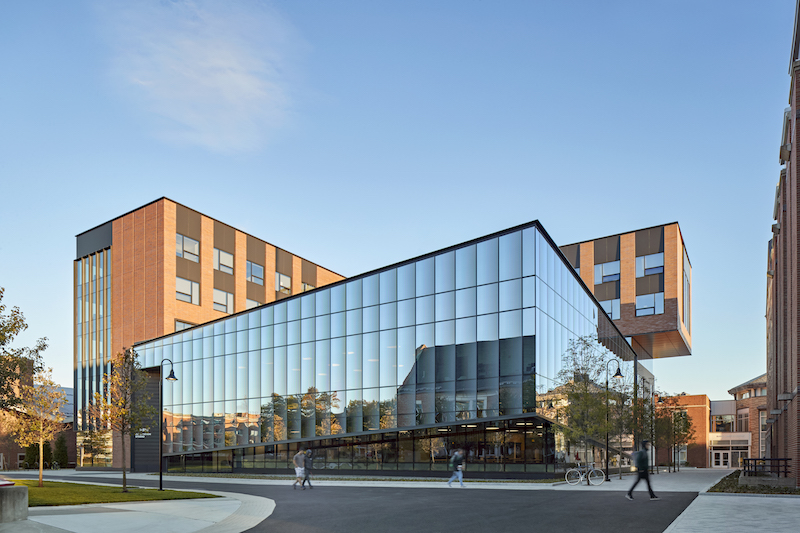 The 78,000-sf building is targeting LEED Gold certification. Image: Robert Benson Photography
The 78,000-sf building is targeting LEED Gold certification. Image: Robert Benson Photography
The building is targeting LEED Gold certification. Daylight is optimized with the installation of a very low 0.48 watts-sf lighting power density system (56% below the lighting code’s baseline). The project team also designed this facility for an almost 50% reduction in energy costs, partly by creating as building envelope for which insulation exceeded the prescriptive code value. Demand-controlled ventilation in academic areas and ducted fresh air into the dorm produce higher air quality.
By using drip irrigation and plants that require less water, the building’s outdoor area is targeting a reduction in its potable water use for landscape by 54%.
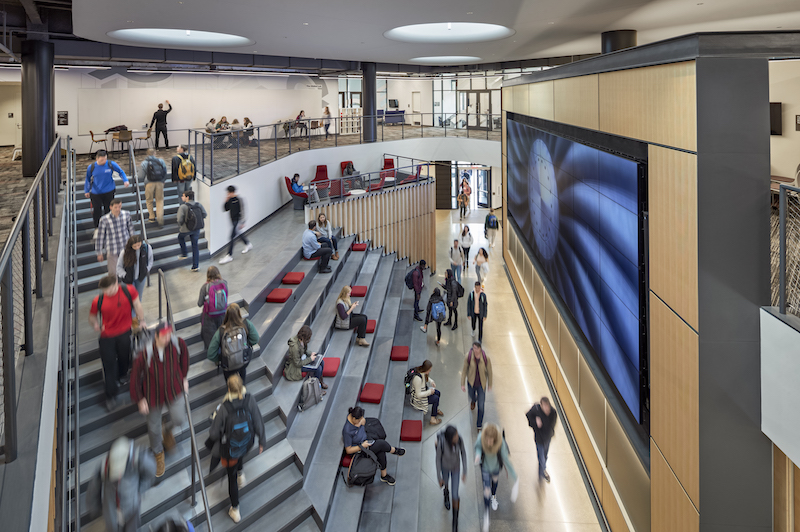 A large stairwell doubles as a meeting place inside the building. Image: Robert Benson Photography
A large stairwell doubles as a meeting place inside the building. Image: Robert Benson Photography
Shawmut’s work on WPI’s Foisie Innovation Studio and Messenger Residence Hall represents the latest in the firm’s academic portfolio, with current projects at Harvard University, Tufts University, and Brown University.
Related Stories
| Dec 16, 2013
Irving, Texas building state’s second net-zero school
Lee Elementary School, scheduled to open in fall 2014, will be net-zero-ready, and if the school board decides to sell district bonds and allow the purchase of additional solar panels, will be a true net-zero facility.
| Dec 13, 2013
Safe and sound: 10 solutions for fire and life safety
From a dual fire-CO detector to an aspiration-sensing fire alarm, BD+C editors present a roundup of new fire and life safety products and technologies.
| Dec 10, 2013
16 great solutions for architects, engineers, and contractors
From a crowd-funded smart shovel to a why-didn’t-someone-do-this-sooner scheme for managing traffic in public restrooms, these ideas are noteworthy for creative problem-solving. Here are some of the most intriguing innovations the BD+C community has brought to our attention this year.
| Dec 9, 2013
Tips for designing higher education's newest building type: the learning commons
In this era of scaled-down budgets, maximized efficiencies, new learning methods and social media’s domination of face time, college and university campuses are gravitating toward a new space type: the learning commons.
| Dec 5, 2013
Exclusive BD+C survey shows reaction to Sandy Hook tragedy
More than 60% of AEC professionals surveyed by BD+C said their firms experienced heightened interest in security measures from school districts they worked with.
| Nov 27, 2013
Exclusive survey: Revenues increased at nearly half of AEC firms in 2013
Forty-six percent of the respondents to an exclusive BD+C survey of AEC professionals reported that revenues had increased this year compared to 2012, with another 24.2% saying cash flow had stayed the same.
| Nov 27, 2013
Wonder walls: 13 choices for the building envelope
BD+C editors present a roundup of the latest technologies and applications in exterior wall systems, from a tapered metal wall installation in Oklahoma to a textured precast concrete solution in North Carolina.
| Nov 27, 2013
University reconstruction projects: The 5 keys to success
This AIA CES Discovery course discusses the environmental, economic, and market pressures affecting facility planning for universities and colleges, and outlines current approaches to renovations for critical academic spaces.
| Nov 26, 2013
Construction costs rise for 22nd straight month in November
Construction costs in North America rose for the 22nd consecutive month in November as labor costs continued to increase, amid growing industry concern over the tight availability of skilled workers.
| Nov 25, 2013
Building Teams need to help owners avoid 'operational stray'
"Operational stray" occurs when a building’s MEP systems don’t work the way they should. Even the most well-designed and constructed building can stray from perfection—and that can cost the owner a ton in unnecessary utility costs. But help is on the way.


